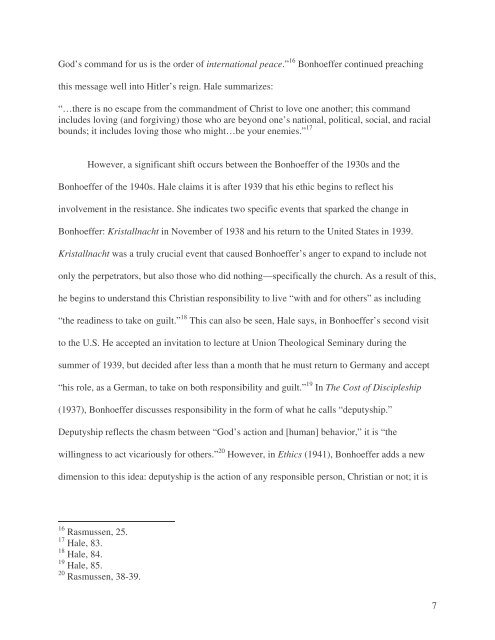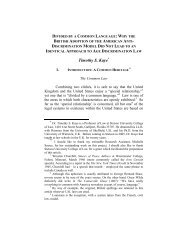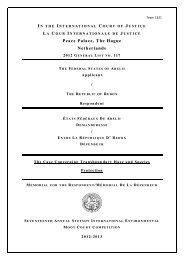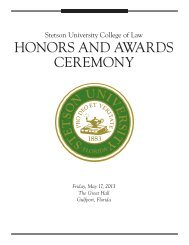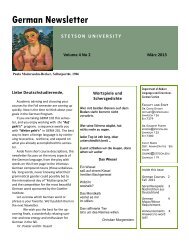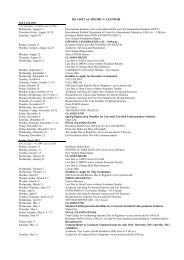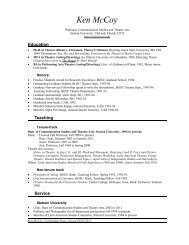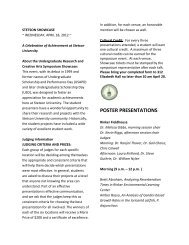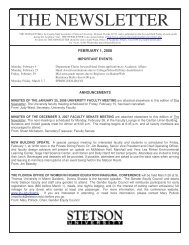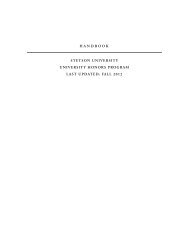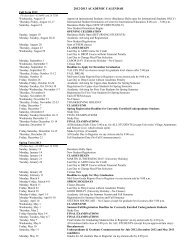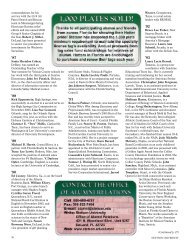Tiffany Huet Class of 2008 Justifying Violence: A ... - Stetson University
Tiffany Huet Class of 2008 Justifying Violence: A ... - Stetson University
Tiffany Huet Class of 2008 Justifying Violence: A ... - Stetson University
Create successful ePaper yourself
Turn your PDF publications into a flip-book with our unique Google optimized e-Paper software.
God’s command for us is the order <strong>of</strong> international peace.” 16 Bonhoeffer continued preaching<br />
this message well into Hitler’s reign. Hale summarizes:<br />
“…there is no escape from the commandment <strong>of</strong> Christ to love one another; this command<br />
includes loving (and forgiving) those who are beyond one’s national, political, social, and racial<br />
bounds; it includes loving those who might…be your enemies.” 17<br />
However, a significant shift occurs between the Bonhoeffer <strong>of</strong> the 1930s and the<br />
Bonhoeffer <strong>of</strong> the 1940s. Hale claims it is after 1939 that his ethic begins to reflect his<br />
involvement in the resistance. She indicates two specific events that sparked the change in<br />
Bonhoeffer: Kristallnacht in November <strong>of</strong> 1938 and his return to the United States in 1939.<br />
Kristallnacht was a truly crucial event that caused Bonhoeffer’s anger to expand to include not<br />
only the perpetrators, but also those who did nothing—specifically the church. As a result <strong>of</strong> this,<br />
he begins to understand this Christian responsibility to live “with and for others” as including<br />
“the readiness to take on guilt.” 18 This can also be seen, Hale says, in Bonhoeffer’s second visit<br />
to the U.S. He accepted an invitation to lecture at Union Theological Seminary during the<br />
summer <strong>of</strong> 1939, but decided after less than a month that he must return to Germany and accept<br />
“his role, as a German, to take on both responsibility and guilt.” 19 In The Cost <strong>of</strong> Discipleship<br />
(1937), Bonhoeffer discusses responsibility in the form <strong>of</strong> what he calls “deputyship.”<br />
Deputyship reflects the chasm between “God’s action and [human] behavior,” it is “the<br />
willingness to act vicariously for others.” 20 However, in Ethics (1941), Bonhoeffer adds a new<br />
dimension to this idea: deputyship is the action <strong>of</strong> any responsible person, Christian or not; it is<br />
16 Rasmussen, 25.<br />
17 Hale, 83.<br />
18 Hale, 84.<br />
19 Hale, 85.<br />
20 Rasmussen, 38-39.<br />
7


